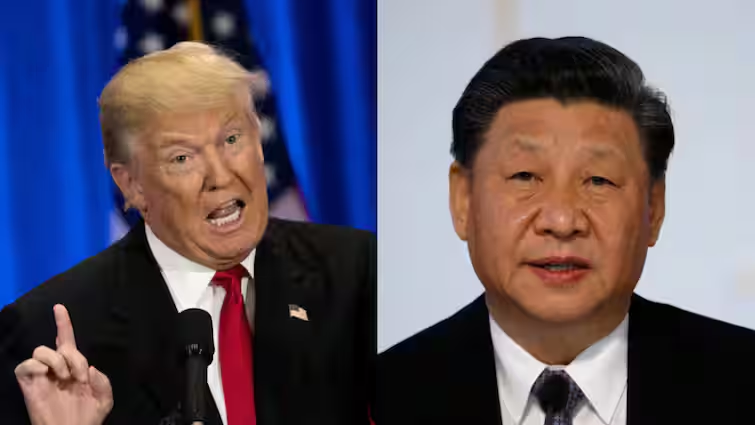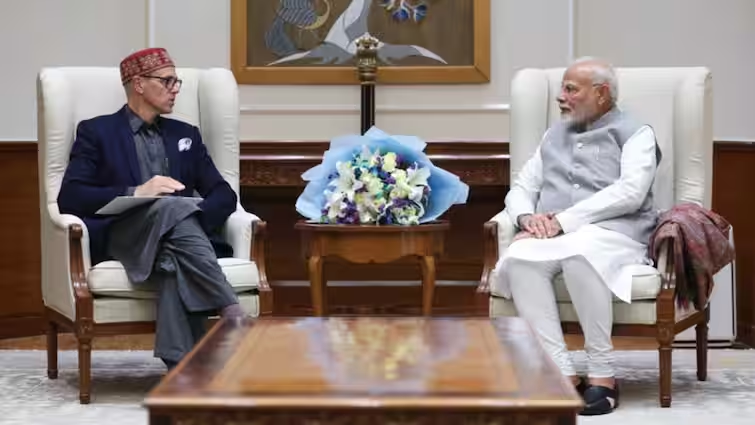China Hits Back at Trump’s Tariffs With 84% Tax on US Products Amid Escalating Trade Tensions
April 9, 2025 — In a significant escalation of the long-standing trade dispute between the United States and China, Beijing has responded to former U.S. President Donald Trump’s decision to enforce a massive 104% import tariff on Chinese goods by announcing steep new tariffs of its own. As per a Reuters report, the Chinese Ministry of Finance declared that an 84% duty will now be applied to a wide range of U.S. imports, effective from April 10.
This aggressive response from China increases its tariff rate on American goods from the earlier 34% to an alarming 84%, reflecting rising economic tensions between the world’s two largest economies.
Tariff War Intensifies
The back-and-forth measures mark a sharp deterioration in trade relations that had previously shown signs of stabilizing. Trump’s sweeping tariff hike, covering nearly all imports from China, has drawn strong criticism from international trade bodies and governments, warning that the measures could severely disrupt global supply chains.
In return, China has opted to retaliate firmly, signaling that it will not back down easily. The Ministry of Commerce in Beijing, in an official statement, announced that the new set of tariffs aims to protect China’s economic interests and maintain its national dignity in the face of what it described as “unilateral pressure” from the U.S.
“These tariffs are necessary to counter the unjustified trade practices of the United States and safeguard our country’s legal rights and economic well-being,” a government spokesperson said.
Export Controls Tightened
Alongside the new tariffs, China’s Ministry of Commerce has taken additional steps to restrict trade with specific American entities. According to the same Reuters report, 12 U.S.-based companies have been placed on China’s export control list, preventing them from receiving critical Chinese technologies or materials.
Furthermore, six U.S. companies were added to China’s “unreliable entity” list. This list is part of Beijing’s growing set of tools designed to punish foreign firms that it believes pose threats to Chinese national interests or violate established trade agreements.
“The enforcement of export controls is aimed at protecting national security and complying with global non-proliferation norms,” the ministry added in its official communication.
Uncertainty Over Future Talks
Unlike several other countries that have begun quiet negotiations with the United States to avoid further economic fallout, the Chinese government, under President Xi Jinping, has remained tight-lipped on whether it is open to resuming dialogue with Washington.
Instead of offering an olive branch, China appears to be digging in. In a strongly worded warning, the commerce ministry stated: “If the U.S. continues to escalate economic and trade restrictions, China will respond with all necessary countermeasures. We are fully prepared and determined to defend our interests till the very end.”
Chinese Premier Li Qiang echoed this sentiment, saying that China has “a broad set of policy tools” at its disposal to offset any negative consequences arising from external pressures. “We are confident in our ability to absorb shocks and respond appropriately,” he said during a media briefing.
Global Markets React Sharply
As news of the rising tariffs spread, global financial markets were quick to react, with investors fearing the beginning of a prolonged trade war that could destabilize economies worldwide.
In Tokyo, the Nikkei 225 index plunged nearly four percent by the close of trading on Wednesday. Markets across Europe were also affected, with benchmark indices in Paris, Frankfurt, and London each slipping by around three percent during midday trading.
The volatility followed earlier market jitters caused by the U.S. administration’s move to introduce a blanket 10% tariff over the weekend on imports from countries including the European Union, Japan, and Vietnam. These measures were widely seen as protectionist and likely to provoke retaliatory steps from America’s trading partners.
Wednesday’s developments added fuel to investor concerns, with market analysts warning that escalating trade conflicts could reduce global economic growth and lead to increased inflation.
Trump’s Protectionist Agenda
The current situation stems from Donald Trump’s renewed push to protect American industries from what he has repeatedly described as “unfair competition.” In recent speeches, Trump has blamed China and other major exporters for taking advantage of the U.S. through trade imbalances, loss of manufacturing jobs, and intellectual property theft.
By enforcing a 104% tariff on all Chinese imports, Trump hopes to drive domestic production, reduce the trade deficit, and pressure China into more favorable trade terms. However, critics argue that such heavy-handed tactics may backfire.
“Tariffs of this magnitude are likely to be passed on to consumers in the form of higher prices,” said an economist at the International Trade Council. “They also create uncertainty for businesses that rely on global supply chains.”
Diplomatic Fallout Expected
Trade experts are warning that the conflict could move beyond economic matters and strain diplomatic relations between the two powers. With no clear plan for dialogue on the table and both nations taking aggressive stances, hopes for a near-term resolution appear slim.
In previous years, the U.S.-China trade war under Trump’s presidency had caused significant instability in markets and disrupted trade flows. Although some progress was made in the form of a partial trade agreement in early 2020, tensions have continued to simmer under the surface.
Now, with these renewed hostilities, the situation seems to be worsening again.
Impact on American Exporters
American farmers, manufacturers, and exporters are expected to bear the brunt of China’s retaliatory tariffs. Products ranging from agricultural produce like soybeans and corn to industrial goods and electronics are likely to be affected.
Industry groups representing exporters have expressed concern that they may lose access to the lucrative Chinese market if the conflict continues. “China is a key buyer of American products, and these tariffs could severely impact our sales and profitability,” said a representative from a leading American manufacturing coalition.
What Lies Ahead?
With the global economy still recovering from the impact of the COVID-19 pandemic and inflation pressures remaining high, trade disruptions of this scale come at a particularly vulnerable time.
Many international leaders have called for restraint and dialogue, urging both Washington and Beijing to reconsider their positions and return to the negotiating table.
However, in the absence of a breakthrough, the world could be heading into another round of economic uncertainty driven by nationalism, protectionism, and power struggles.
As things stand, both countries seem prepared for a long standoff—one that could reshape not just their bilateral relationship, but the broader framework of international trade in the years to come.















